- Home
- W. W. Jacobs
Captains All and Others Page 6
Captains All and Others Read online
Page 6
Of all classes of men, those who follow the sea are probably the mostprone to superstition. Afloat upon the black waste of waters, at themercy of wind and sea, with vast depths and strange creatures belowthem, a belief in the supernatural is easier than ashore, under thecheerful gas-lamps. Strange stories of the sea are plentiful, and anincident which happened within my own experience has made me somewhatchary of dubbing a man fool or coward because he has encounteredsomething he cannot explain. There are stories of the supernatural withprosaic sequels; there are others to which the sequel has never beenpublished.
I was fifteen years old at the time, and as my father, who had a strongobjection to the sea, would not apprentice me to it, I shipped beforethe mast on a sturdy little brig called the Endeavour, bound for Riga.She was a small craft, but the skipper was as fine a seaman as one couldwish for, and, in fair weather, an easy man to sail under. Most boyshave a rough time of it when they first go to sea, but, with a strongsense of what was good for me, I had attached myself to a brawny,good-natured infant, named Bill Smith, and it was soon understood thatwhoever hit me struck Bill by proxy. Not that the crew were particularlybrutal, but a sound cuffing occasionally is held by most seamen to bebeneficial to a lad's health and morals. The only really spiteful fellowamong them was a man named Jem Dadd. He was a morose, sallow-lookingman, of about forty, with a strong taste for the supernatural, and astronger taste still for frightening his fellows with it. I have seenBill almost afraid to go on deck of a night for his trick at the wheel,after a few of his reminiscences. Rats were a favourite topic with him,and he would never allow one to be killed if he could help it, for heclaimed for them that they were the souls of drowned sailors, hencetheir love of ships and their habit of leaving them when they becameunseaworthy. He was a firm believer in the transmigration of souls, someidea of which he had, no doubt, picked up in Eastern ports, and gave hisshivering auditors to understand that his arrangements for his ownimmediate future were already perfected.
We were six or seven days out when a strange thing happened. Dadd hadthe second watch one night, and Bill was to relieve him. They were notvery strict aboard the brig in fair weather, and when a man's time wasup he just made the wheel fast, and, running for'ard, shouted down thefo'c's'le. On this night I happened to awake suddenly, in time to seeBill slip out of his bunk and stand by me, rubbing his red eyelids withhis knuckles.
"Dadd's giving me a long time," he whispered, seeing that I was awake;"it's a whole hour after his time."
He pattered up on deck, and I was just turning over, thankful that I wastoo young to have a watch to keep, when he came softly down again, and,taking me by the shoulders, shook me roughly.
"Jack," he whispered. "Jack."
I raised myself on my elbows, and, in the light of the smoking lamp, sawthat he was shaking all over.
"Come on deck," he said, thickly.
I put on my clothes, and followed him quietly to the sweet, cool airabove. It was a beautiful clear night, but, from his manner, I lookednervously around for some cause of alarm. I saw nothing. The deck wasdeserted, except for the solitary figure at the wheel.
"Look at him," whispered Bill, bending a contorted face to mine.
I walked aft a few steps, and Bill followed slowly. Then I saw that JemDadd was leaning forward clumsily on the wheel, with his hands clenchedon the spokes.
"He's asleep," said I, stopping short.
Bill breathed hard. "He's in a queer sleep," said he; "kind o' trancemore like. Go closer."
I took fast hold of Bill's sleeve, and we both went. The light of thestars was sufficient to show that Dadd's face was very white, and thathis dim, black eyes were wide open, and staring in a very strange anddreadful manner straight before him.
"Dadd," said I, softly, "Dadd!"
There was no reply, and, with a view of arousing him, I tapped onesinewy hand as it gripped the wheel, and even tried to loosen it.
He remained immovable, and, suddenly with a great cry, my couragedeserted me, and Bill and I fairly bolted down into the cabin and wokethe skipper.
Then we saw how it was with Jem, and two strong seamen forcibly loosenedthe grip of those rigid fingers, and, laying him on the deck, coveredhim with a piece of canvas. The rest of the night two men stayed at thewheel, and, gazing fearfully at the outline of the canvas, longed fordawn.
It came at last, and, breakfast over, the body was sewn up in canvas,and the skipper held a short service compiled from a Bible whichbelonged to the mate, and what he remembered of the Burial Serviceproper. Then the corpse went overboard with a splash, and the men, afterstanding awkwardly together for a few minutes, slowly dispersed to theirduties.
For the rest of that day we were all very quiet and restrained; pity forthe dead man being mingled with a dread of taking the wheel when nightcame.
"The wheel's haunted," said the cook, solemnly; "mark my words, there'smore of you will be took the same way Dadd was."
The cook, like myself, had no watch to keep.
The men bore up pretty well until night came on again, and then theyunanimously resolved to have a double watch. The cook, sorely againsthis will, was impressed into the service, and I, glad to oblige mypatron, agreed to stay up with Bill.
Some of the pleasure had vanished by the time night came, and I seemedonly just to have closed my eyes when Bill came, and, with a rough shakeor two, informed me that the time had come. Any hope that I might havehad of escaping the ordeal was at once dispelled by his expectantdemeanour, and the helpful way in which he assisted me with my clothes,and, yawning terribly, I followed him on deck.
The night was not so clear as the preceding one, and the air was chilly,with a little moisture in it. I buttoned up my jacket, and thrust myhands in my pockets.
"Everything quiet?" asked Bill as he stepped up and took the wheel.
"Ay, ay," said Roberts, "quiet as the grave," and, followed by hiswilling mate, he went below.
I sat on the deck by Bill's side as, with a light touch on the wheel, hekept the brig to her course. It was weary work sitting there, doingnothing, and thinking of the warm berth below, and I believe that Ishould have fallen asleep, but that my watchful companion stirred mewith his foot whenever he saw me nodding.
I suppose I must have sat there, shivering and yawning, for about anhour, when, tired of inactivity, I got up and went and leaned over theside of the vessel. The sound of the water gurgling and lapping by wasso soothing that I began to doze.
I was recalled to my senses by a smothered cry from Bill, and, runningto him, I found him staring to port in an intense and uncomfortablefashion. At my approach, he took one hand from the wheel, and gripped myarm so tightly that I was like to have screamed with the pain of it.
"Jack," said he, in a shaky voice, "while you was away something poppedits head up, and looked over the ship's side."
"You've been dreaming," said I, in a voice which was a very fairimitation of Bill's own.
"Dreaming," repeated Bill, "dreaming! Ah, look there!"
He pointed with outstretched finger, and my heart seemed to stop beatingas I saw a man's head appear above the side. For a brief space it peeredat us in silence, and then a dark figure sprang like a cat on to thedeck, and stood crouching a short distance away.
A mist came before my eyes, and my tongue failed me, but Bill let off aroar, such as I have never heard before or since. It was answered frombelow, both aft and for'ard, and the men came running up on deck just asthey left their beds.
"What's up?" shouted the skipper, glancing aloft.
For answer, Bill pointed to the intruder, and the men, who had justcaught sight of him, came up and formed a compact knot by the wheel.
"Come over the side, it did," panted Bill, "come over like a ghost outof the sea."
The skipper took one of the small lamps from the binnacle, and, holdingit aloft, walked boldly up to the cause of alarm. In the little patch oflight we saw a ghastly black-bearded man, dripping with water, regardingus with unwink
ing eyes, which glowed red in the light of the lamp.
"Where did you come from?" asked the skipper.
The figure shook its head.
"Where did you come from?" he repeated, walking up, and laying his handon the other's shoulder.
Then the intruder spoke, but in a strange fashion and in strange words.We leaned forward to listen, but, even when he repeated them, we couldmake nothing of them.
"He's a furriner," said Roberts.
"Blest if I've ever 'eard the lingo afore," said Bill. "Does anybodyrekernize it?"
Nobody did, and the skipper, after another attempt, gave it up, and,falling back upon the universal language of signs, pointed first to theman and then to the sea. The other understood him, and, in a heavy,slovenly fashion, portrayed a man drifting in an open boat, andclutching and clambering up the side of a passing ship. As his meaningdawned upon us, we rushed to the stern, and, leaning over, peered intothe gloom, but the night was dark, and we saw nothing.
"Well," said the skipper, turning to Bill, with a mighty yawn, "take himbelow, and give him some grub, and the next time a gentleman calls onyou, don't make such a confounded row about it."
He went below, followed by the mate, and after some slight hesitation,Roberts stepped up to the intruder, and signed to him to follow. He camestolidly enough, leaving a trail of water on the deck, and, afterchanging into the dry things we gave him, fell to, but without muchappearance of hunger, upon some salt beef and biscuits, regarding usbetween bites with black, lack-lustre eyes.
"He seems as though he's a-walking in his sleep," said the cook.
"He ain't very hungry," said one of the men; "he seems to mumble hisfood."
"Hungry!" repeated Bill, who had just left the wheel. "Course he ain'tfamished. He had his tea last night."
The men stared at him in bewilderment.
"Don't you see?" said Bill, still in a hoarse whisper; "ain't you everseen them eyes afore? Don't you know what he used to say about dying?It's Jem Dadd come back to us. Jem Dadd got another man's body, as healways said he would."
"Rot!" said Roberts, trying to speak bravely, but he got up, and, withthe others, huddled together at the end of the fo'c's'le, and stared ina bewildered fashion at the sodden face and short, squat figure of ourvisitor. For his part, having finished his meal, he pushed his platefrom him, and, leaning back on the locker, looked at the empty bunks.
Roberts caught his eye, and, with a nod and a wave of his hand,indicated the bunks. The fellow rose from the locker, and, amid abreathless silence, climbed into one of them--Jem Dadd's!
He slept in the dead sailor's bed that night, the only man in thefo'c's'le who did sleep properly, and turned out heavily and lumpishlyin the morning for breakfast.
The skipper had him on deck after the meal, but could make nothing ofhim. To all his questions he replied in the strange tongue of the nightbefore, and, though our fellows had been to many ports, and knew a wordor two of several languages, none of them recognized it. The skippergave it up at last, and, left to himself, he stared about him for sometime, regardless of our interest in his movements, and then, leaningheavily against the side of the ship, stayed there so long that wethought he must have fallen asleep.
"He's half-dead now!" whispered Roberts.
"Hush!" said Bill, "mebbe he's been in the water a week or two, andcan't quite make it out. See how he's looking at it now."
He stayed on deck all day in the sun, but, as night came on, returned tothe warmth of the fo'c's'le. The food we gave him remained untouched,and he took little or no notice of us, though I fancied that he saw thefear we had of him. He slept again in the dead man's bunk, and whenmorning came still lay there.
Until dinner-time, nobody interfered with him, and then Roberts, pushedforward by the others, approached him with some food. He motioned, itaway with a dirty, bloated hand, and, making signs for water, drank iteagerly.
For two days he stayed there quietly, the black eyes always open, thestubby fingers always on the move. On the third morning Bill, who hadconquered his fear sufficiently to give him water occasionally, calledsoftly to us.
"Come and look at him," said he. "What's the matter with him?"
"He's dying!" said the cook, with a shudder.
"He can't be going to die yet!" said Bill, blankly.
As he spoke the man's eyes seemed to get softer and more life-like, andhe looked at us piteously and helplessly. From face to face he gazed inmute inquiry, and then, striking his chest feebly with his fist, utteredtwo words.
We looked at each other blankly, and he repeated them eagerly, and againtouched his chest.
"It's his name," said the cook, and we all repeated them.
He smiled in an exhausted fashion, and then, rallying his energies, heldup a forefinger; as we stared at this new riddle, he lowered it, andheld up all four fingers, doubled.
"Come away," quavered the cook; "he's putting a spell on us."
We drew back at that, and back farther still, as he repeated themotions. Then Bill's face cleared suddenly, and he stepped towards him.
"He means his wife and younkers!" he shouted eagerly. "This ain't no JemDadd!"
It was good then to see how our fellows drew round the dying sailor, andstrove to cheer him. Bill, to show he understood the finger business,nodded cheerily, and held his hand at four different heights from thefloor. The last was very low, so low that the man set his lips together,and strove to turn his heavy head from us.
"Poor devil!" said Bill, "he wants us to tell his wife and childrenwhat's become of him. He must ha' been dying when he come aboard. Whatwas his name, again?"
But the name was not easy to English lips, and we had already forgottenit.
"Ask him again," said the cook, "and write it down. Who's got a pen?"
He went to look for one as Bill turned to the sailor to get him torepeat it. Then he turned round again, and eyed us blankly, for, by thistime, the owner had himself forgotten it.
THE FOUR PIGEONS

_preview.jpg) Sailor's Knots (Entire Collection)
Sailor's Knots (Entire Collection)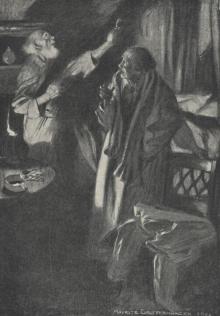 The Monkey's Paw
The Monkey's Paw Little Masterpieces of American Wit and Humor, Volume II
Little Masterpieces of American Wit and Humor, Volume II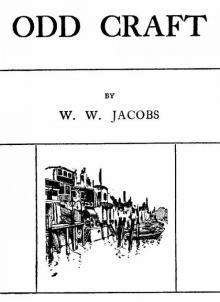 Odd Craft, Complete
Odd Craft, Complete The Lady of the Barge and Others, Entire Collection
The Lady of the Barge and Others, Entire Collection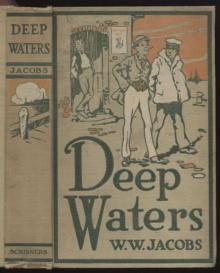 Deep Waters, the Entire Collection
Deep Waters, the Entire Collection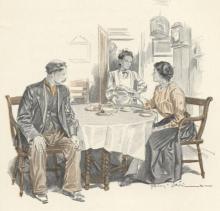 Three at Table
Three at Table Light Freights
Light Freights Night Watches
Night Watches The Three Sisters
The Three Sisters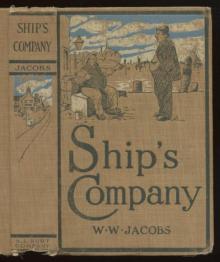 Ship's Company, the Entire Collection
Ship's Company, the Entire Collection His Lordship's Leopard: A Truthful Narration of Some Impossible Facts
His Lordship's Leopard: A Truthful Narration of Some Impossible Facts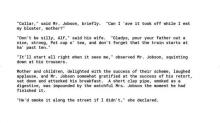 Fine Feathers
Fine Feathers My Man Sandy
My Man Sandy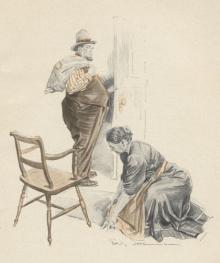 Self-Help
Self-Help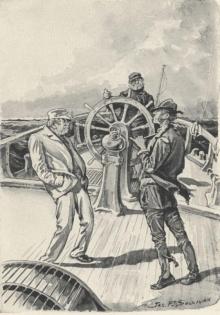 Captains All and Others
Captains All and Others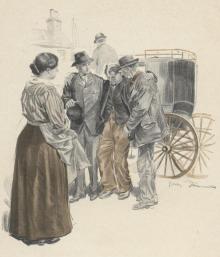 Back to Back
Back to Back More Cargoes
More Cargoes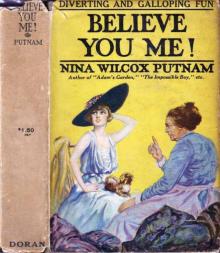 Believe You Me!
Believe You Me!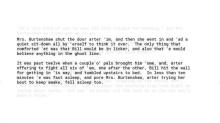 Keeping Up Appearances
Keeping Up Appearances The Statesmen Snowbound
The Statesmen Snowbound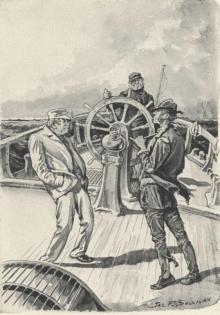 An Adulteration Act
An Adulteration Act The Old Soldier's Story: Poems and Prose Sketches
The Old Soldier's Story: Poems and Prose Sketches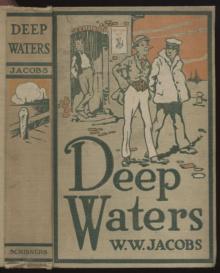 Husbandry
Husbandry Love and the Ironmonger
Love and the Ironmonger The Old Man's Bag
The Old Man's Bag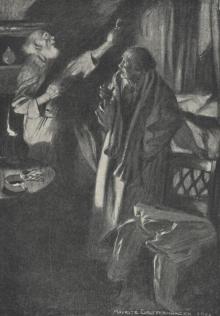 Dirty Work
Dirty Work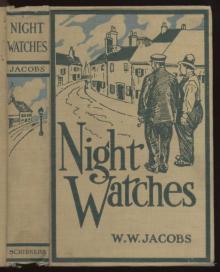 Easy Money
Easy Money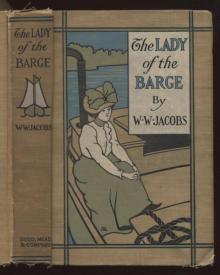 The Lady of the Barge
The Lady of the Barge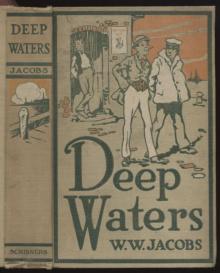 Bedridden and the Winter Offensive
Bedridden and the Winter Offensive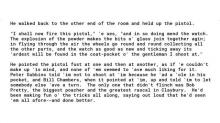 Odd Charges
Odd Charges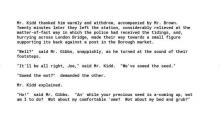 Friends in Need
Friends in Need Watch-Dogs
Watch-Dogs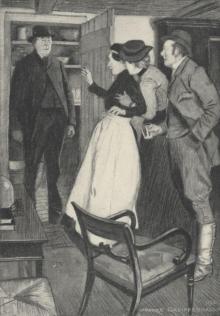 Cupboard Love
Cupboard Love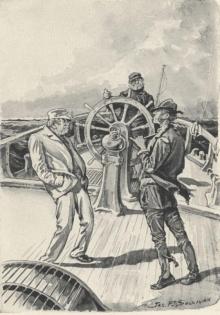 Captains All
Captains All A Spirit of Avarice
A Spirit of Avarice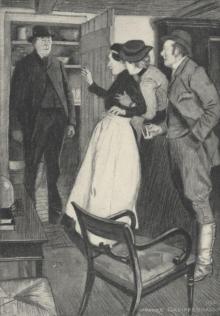 The Nest Egg
The Nest Egg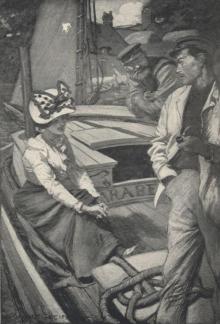 The Guardian Angel
The Guardian Angel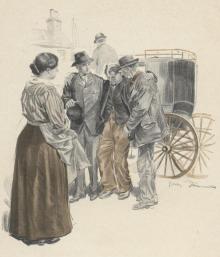 The Convert
The Convert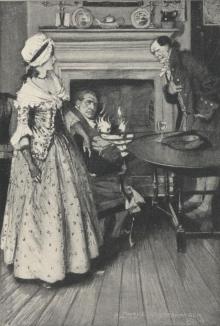 Captain Rogers
Captain Rogers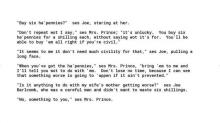 Breaking a Spell
Breaking a Spell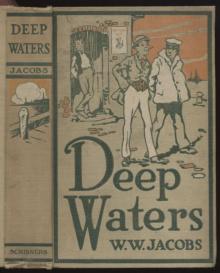 Striking Hard
Striking Hard The Bequest
The Bequest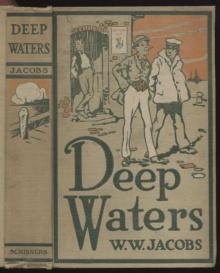 Shareholders
Shareholders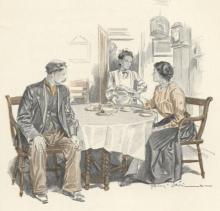 The Weaker Vessel
The Weaker Vessel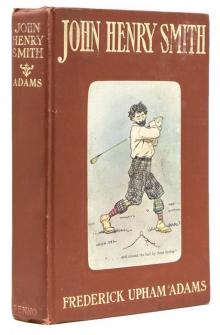 John Henry Smith
John Henry Smith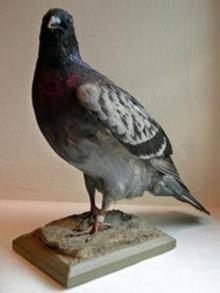 Four Pigeons
Four Pigeons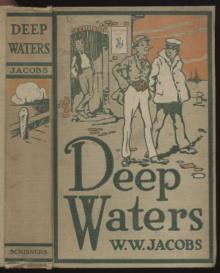 Made to Measure
Made to Measure For Better or Worse
For Better or Worse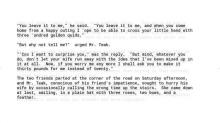 Fairy Gold
Fairy Gold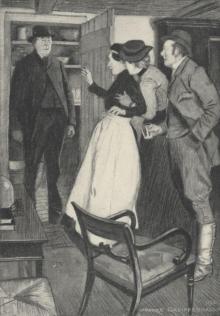 Family Cares
Family Cares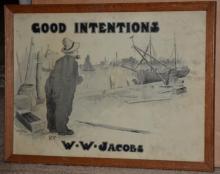 Good Intentions
Good Intentions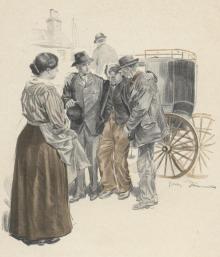 Prize Money
Prize Money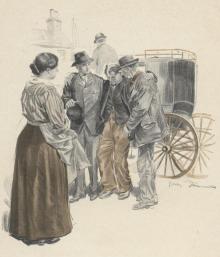 The Temptation of Samuel Burge
The Temptation of Samuel Burge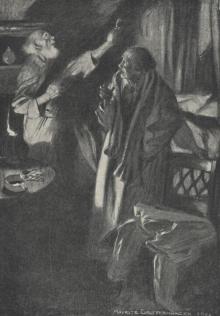 The Madness of Mr. Lister
The Madness of Mr. Lister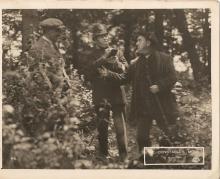 The Constable's Move
The Constable's Move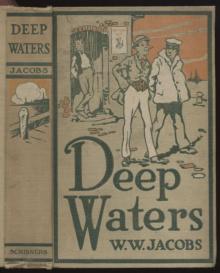 Paying Off
Paying Off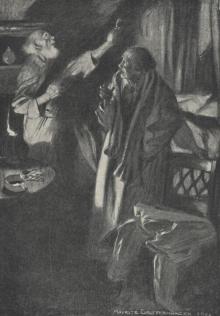 Double Dealing
Double Dealing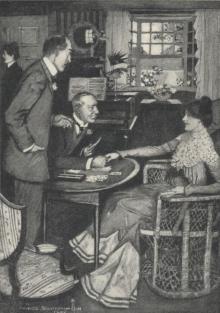 A Mixed Proposal
A Mixed Proposal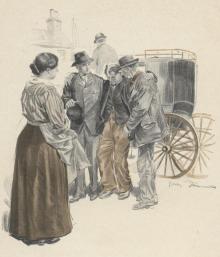 Bill's Paper Chase
Bill's Paper Chase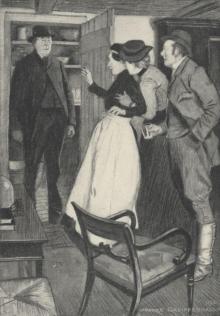 The Changing Numbers
The Changing Numbers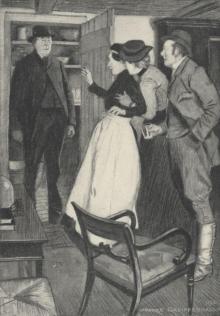 Over the Side
Over the Side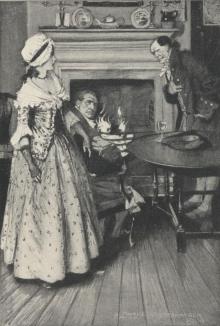 Lawyer Quince
Lawyer Quince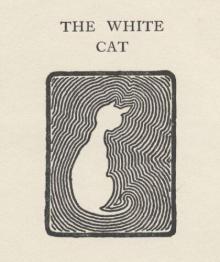 The White Cat
The White Cat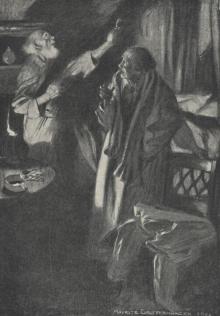 Admiral Peters
Admiral Peters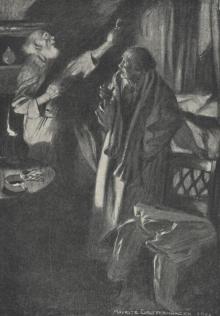 The Third String
The Third String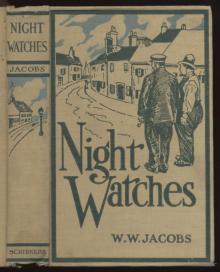 The Vigil
The Vigil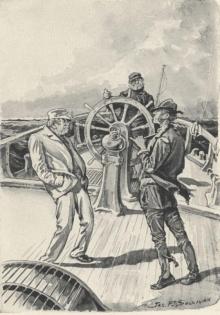 Bill's Lapse
Bill's Lapse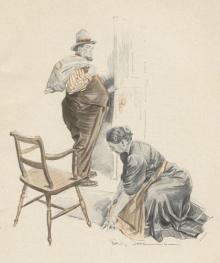 His Other Self
His Other Self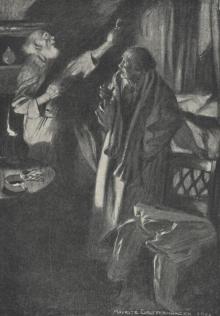 Matrimonial Openings
Matrimonial Openings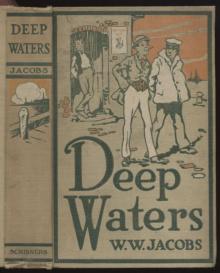 The Substitute
The Substitute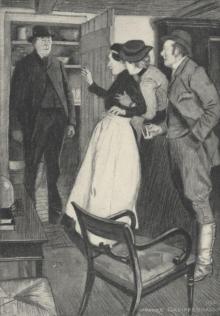 Deserted
Deserted Dual Control
Dual Control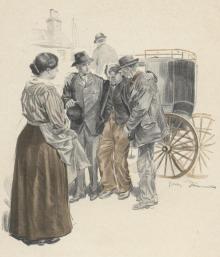 Homeward Bound
Homeward Bound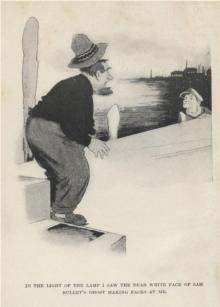 Sam's Ghost
Sam's Ghost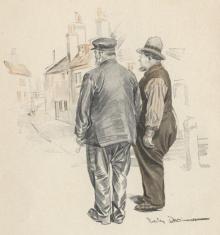 The Unknown
The Unknown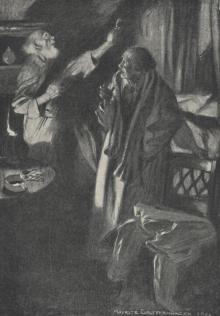 Stepping Backwards
Stepping Backwards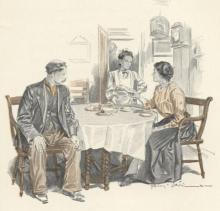 Sentence Deferred
Sentence Deferred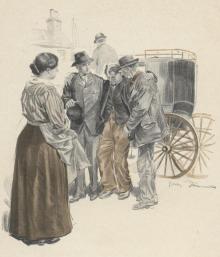 The Persecution of Bob Pretty
The Persecution of Bob Pretty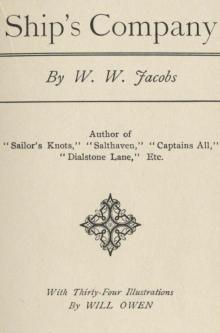 Skilled Assistance
Skilled Assistance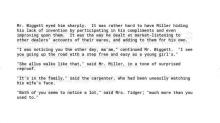 A Golden Venture
A Golden Venture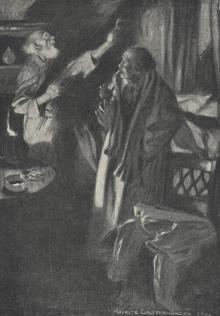 Establishing Relations
Establishing Relations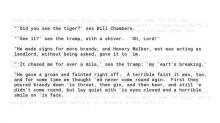 A Tiger's Skin
A Tiger's Skin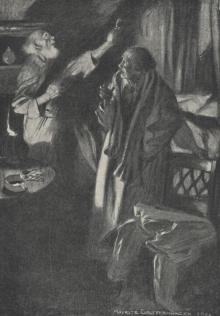 Bob's Redemption
Bob's Redemption Manners Makyth Man
Manners Makyth Man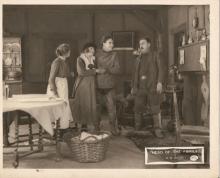 The Head of the Family
The Head of the Family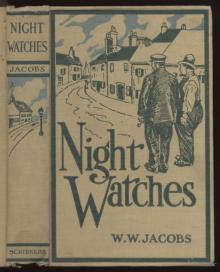 The Understudy
The Understudy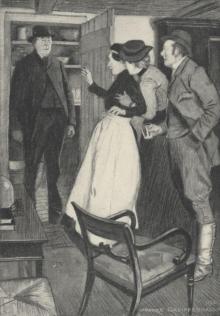 Odd Man Out
Odd Man Out Once Aboard the Lugger-- The History of George and his Mary
Once Aboard the Lugger-- The History of George and his Mary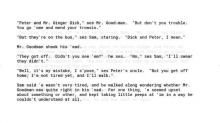 Peter's Pence
Peter's Pence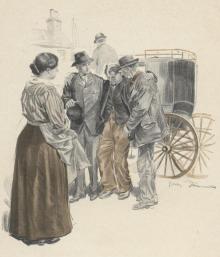 Blundell's Improvement
Blundell's Improvement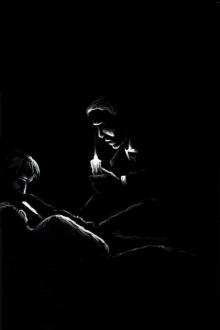 The Toll-House
The Toll-House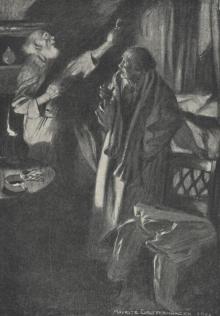 Dixon's Return
Dixon's Return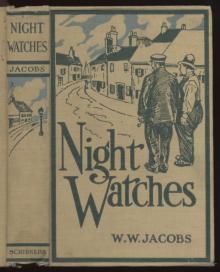 Keeping Watch
Keeping Watch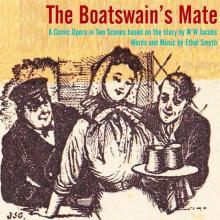 The Boatswain's Mate
The Boatswain's Mate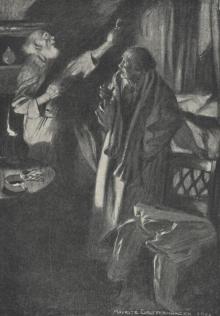 The Castaway
The Castaway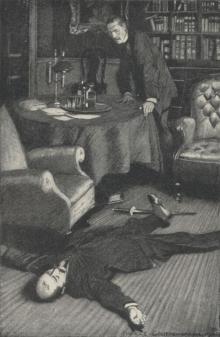 In the Library
In the Library The Monkey's Paw and Other Tales Of Mystery and the Macabre
The Monkey's Paw and Other Tales Of Mystery and the Macabre